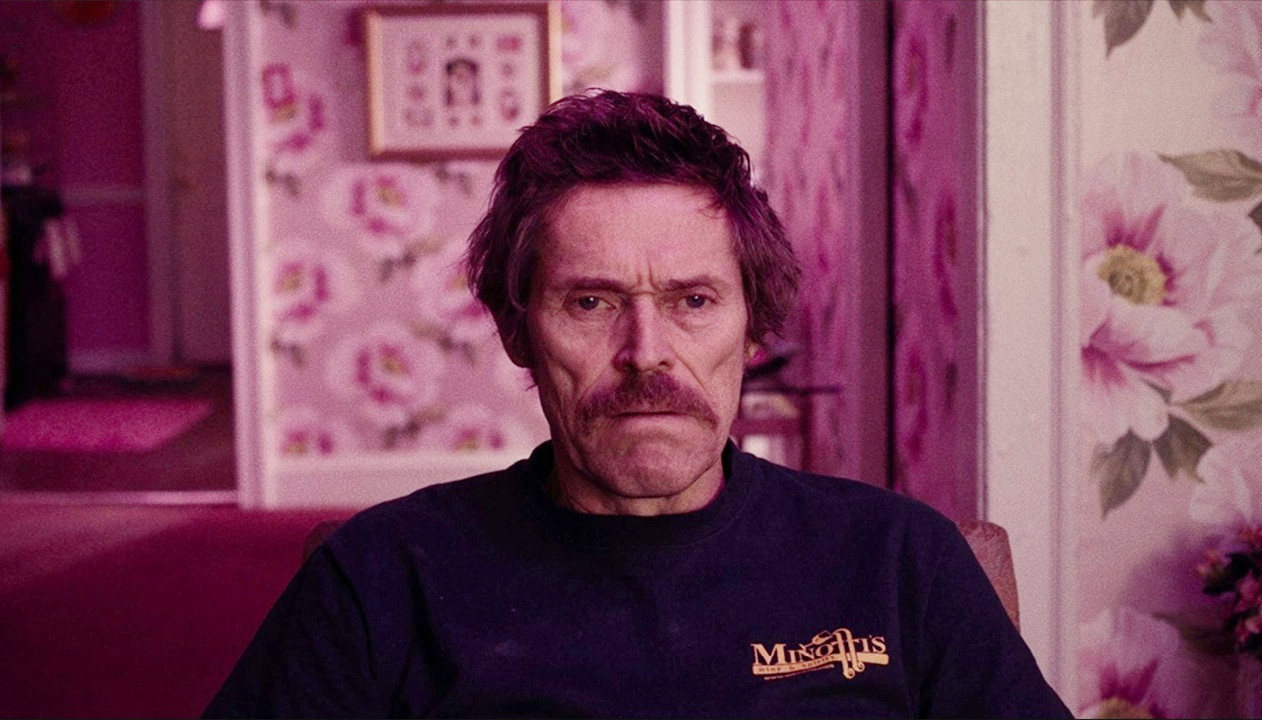
“I always feel that crime films are about capitalism because it is a genre where it is perfectly acceptable for all the characters to be motivated by the desire for money.”
– Andrew Dominik
Since the genesis of cinema, the crime genre has been jam-packed with seminal achievements. However, the assessments of unenlightened, harsh critics have caused many brilliant crime pictures to be avoided by audiences. This list aims to bring to light both unfairly reviewed works and well-regarded foreign hidden gems that are as thoroughly entertaining to experience as the classics.
1. The Mechanic (Michael Winner, 1972)
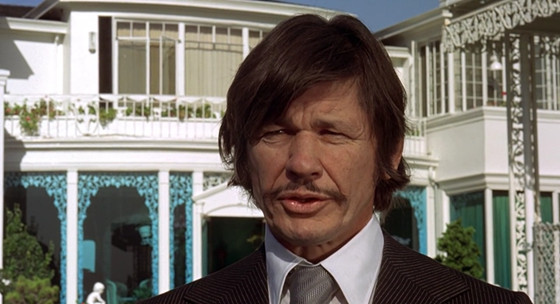
Loner Arthur Bishop (Charles Bronson) is a renowned hitman. He’s ordered to kill his father’s friend, Harry McKenna (Keenan Wynn). After the killing, Arthur’s befriended by Harry’s cold-blooded son Steve (Jan-Michael Vincent). Arthur takes Steve under his wing, tutoring him to become a hitman.
The movie opens with a tense, 15-minute procedural sequence with no dialogue, centred around a hotel window. With Zen quietude, Arthur ingeniously and methodically assassinates his target to make it look like an accident. His professional abilities are as finessed as the classical music he listens to. The Mechanic contains arguably Charles Bronson’s best acting. This is not simply because he delivers his signature stoic, badass persona.
It is also because the writing offers him the opportunity to delve into nuanced drama, be it when Arthur’s suffering from an anxiety attack, or his extended loneliness. As well as its funny, noteworthy action sequences, such as an Italian cliff car chase, The Mechanic possesses a subtext of bleak existential nihilism. This is most apparent in a scene where Steve’s girlfriend slashes her wrists, but Steve refuses to assist her. He casually locates something to eat while she pleads for his help.
The Mechanic debates the merits of a solitary life outside of the law and society against a mainstream, socially integrated existence. It asks whether we can transcend the limitations of our personality, or whether we’re damned to the hand we’re dealt. Trawling mixed reviews in ‘72, in hindsight, The Mechanic is one of the most well-written and exhilarating action movies of the ‘70s. It was the second picture in a long collaboration between Bronson and director Michael Winner, spawning the Death Wish franchise.
2. Cisco Pike (Bill L. Norton, 1972)
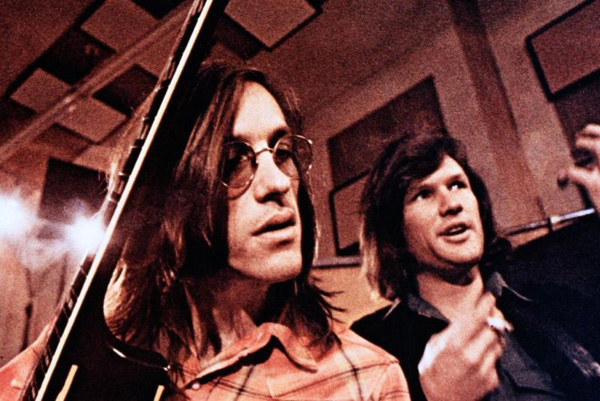
“It ain’t your goddamn body they’re after, man. It’s your soul.” LA country singer and former drug dealer Cisco Pike (Kris Kristofferson) is facing prosecution from the slippery Detective Leo Holland (Gene Hackman). Holland makes Cisco a proposition. If Cisco can sell $10,000 worth of cannabis in 59 hours for him, Holland will drop the charges. Karen Black and Harry Dean Stanton co-star.
Cisco Pike is an evocative memoir of hippie-era LA. This is felt in its bohemian set design, groovy fashion, inside look at the drug and music scenes and freewheeling atmosphere, echoing Easy Rider. It encapsulates the period’s political and generational divide, through a personification of the rift between authority and the counterculture. In his first leading role, Kris Kristofferson supplies the soundtrack and styles a comically laid-back performance.
Both his characterisation and the screenplay portends the Coen brothers’ work: The Big Lebowski and Inside Llewyn Davis. Other soundtrack contributions are made by blues harmonica legend Sonny Terry and Tejano singer Doug Sahm, who also makes a cameo appearance. As always, Harry Dean Stanton’s melancholy interpretation of Jesse (Cisco’s ex-bandmate) imbues the piece with remarkable realism, humaneness and philosophical introspection.
He’s peered by the consistently dazzling, frightening work of Gene Hackman. For all the saudade the movie invokes for the ‘70s, the characters are living in nostalgia for the ‘60s, when Cisco and Jesse were successful musicians. With them now washed-up, drug-ravaged, sad and past their heyday, the movie serves as a sorrowful reflection on the psychedelic era.
A comedown off the trip of the ‘60s. An idealistic hippie dream that never quite materialised for Cisco and Jesse. “That place where the wave finally broke and rolled back,” as Hunter Thompson eulogised in Fear and Loathing in Las Vegas. Ultimately, Cisco Pike is an era-defining, meaningful tragedy warranting more attention and praise than it has accumulated.
3. And Then There Were None (Peter Collinson, 1974)
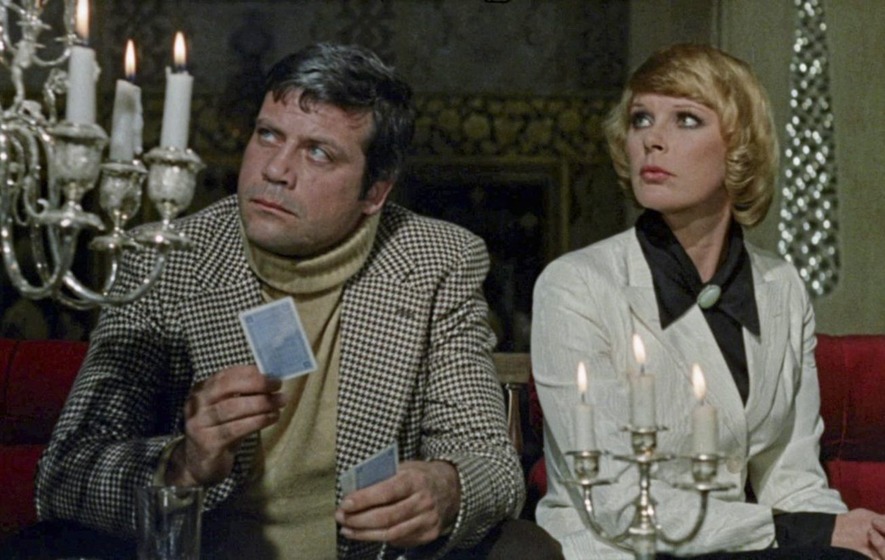
10 strangers are invited to an isolated hotel in the Iranian desert by an unknown host. They’re played a tape accusing them all of murder. One by one, the guests are slain in increasingly grisly methods. Oliver Reed, Richard Attenborough and Chitty Chitty Bang Bang’s Gert Fröbe star.
The 1974 adaptation of Agatha Christie’s paradigmatic whodunit novel was compared unfavourably against the celebrated 1945 version. This criticism is baseless given the exceeding entertainment value of the ‘74 remake. A testament to Christie’s plotting, the narrative never renounces its excitement, mystery and suspense. Integral to a great murder mystery, the killer’s identity remains utterly inscrutable until the shocking twist ending.
Moreover, the writing magnifies the devastating hurt our past transgressions can cause others. Visually, DP Fernando Arribas captures the ruins of Persepolis, the palatial Shah Abbas hotel and Shah mosque as beautifully as the buildings’ Islamic floral, geometric patterns. Of the performances, what is obvious is that Oliver Reed was one of the preeminent actors of the 20th century.
Aside from his startling emotional facility, alchemic talent and detailed craft, Reed had an intensely affecting, primal and commanding screen presence. It is hard to look away from the hypnotic devotion of his passionate, hair-raising masterclass, dwarfing most other actors in cinema history. Endless murder mysteries have been released, but the under-appreciated And Then There Were None (1974) is one of the best. It will be of interest to fans of Rian Johnson’s Knives Out movies.
4. White Sands (Roger Donaldson, 1992)
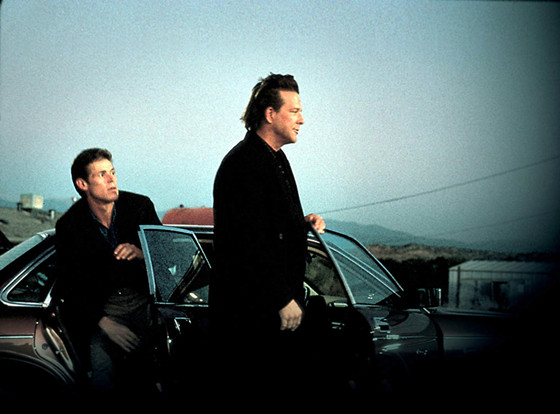
Sheriff Ray Dolezal (Willem Dafoe) finds a corpse in the desert with a suitcase containing half a million dollars. Dolezal’s murder investigation leads him to impersonate the dead man and become employed by criminals Gorman Lennox (Mickey Rourke) and Lane Bodine (Mary Elizabeth Mastrantonio). Samuel L. Jackson and M. Emmet Walsh also star.
White Sands has been forgotten as a well-directed, entertaining mystery-thriller with a classic noir storyline of unpredictable twists. It’s figure-headed by its impressive performances. Alongside the ever-sensational Dafoe (in a rare leading role), Samuel L. Jackson and M. Emmet Walsh establish their acting mastery. With natural talent, they colour their characters with great detail: mid-thought facial expressions, verbal ticks and focused emotional intensity. It wouldn’t be farfetched to assume that White Sands precipitated Jackson’s casting in Pulp Fiction.
Aesthetically, the movie showcases the magnificence of America’s southwestern desert. On this note, the ending veers into surrealism, aided by the dreamscape of New Mexico’s White Sands National Park. The most iconic image comes with Jackson’s character sprinting over the alien planet-like white dunes with a briefcase. Though slightly let down by the unskilled arrogance of the overrated Mickey Rourke, the excellent White Sands is a gem of 1990s neo-noir cinema.
5. Election (Johnnie To, 2005)
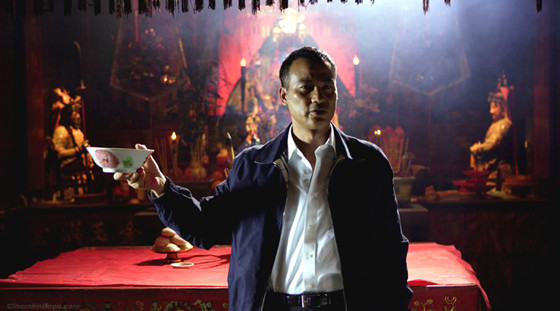
After the death of Hong Kong’s triad leader, the gangs are plunged into a power struggle. Each boss attempts to assert themselves as the overall leader.
As Goodfellas is to the Italian American mafia, Election is the definitive movie about the triads: body-tattooed mobsters of the Chinese diaspora. Unlike other gangster films, one of the ways Election excels is through its non-reliance on violence. In similarity to a drama, the story’s plot points arrive through the colourful characters’ discourses, quarrels and relationship dynamics.
When the horrific action does appear, it’s all the more poignant and powerful that it was reserved for the climax, steepening the story arc with exponential tension. Election’s plot-centring MacGuffin is an intriguing, ornate dragon baton. Like the cursed baton’s antique origin, Election is enriched with the mythology of the triads’ foundation in historical China, underlining their honour code and particular traditions.
While the movie succeeds as a straightforward mob yarn, an important message materialises when a little boy witnesses his father savagely murdering a man. As a result, Election touches upon the long-term impact and personality alteration an exposure to violence can have upon a child. Ergo, this demonstrates how criminality is perpetuated across generations. Election accrued awards and acclaim in Hong Kong, but it deserves to be more widely watched in the West by crime aficionados.